Mourning Becomes Electra

Brief Synopsis
Cast & Crew
Dudley Nichols
Rosalind Russell
Michael Redgrave
Raymond Massey
Katina Paxinou
Leo Genn
Film Details
Technical Specs

Synopsis
In New England at the end of the Civil War, the wealthy Mannon family, which made its fortune in shipping, is being torn apart by jealousy and hatred. Just before her father Ezra, a Union general, and brother Orin are due home from the war, Livinia Mannon follows her mother Christine to New York and sees her kissing the much younger Captain Adam Brant in his house. Later, jealous Livinia, who also has been kissed by the sea captain, tells returning officer Peter Niles, her childhood sweetheart, that she cannot marry him because of pressing family problems. She then hints to her mother, whom she has long hated, her knowledge of the affair. After devoted servant Seth Beckwith suggests to Livinia that Adam might be the son of her banished great uncle David and his wife Marie, a former Mannon servant, she questions Adam about his family when he comes calling at the house. Adam freely admits he is a Mannon and tells his cousin that, because of the harsh treatment that his now-deceased mother received from the Mannon men, he pursued Christine to seek revenge on them. Armed with this information, Livinia, who worships her father, confronts Christine about her affair. She is shocked to learn, however, that her mother, who has detested the domineering Ezra since their honeymoon, already knows about Adam's identity and plans to run off with him anyway. As a counter move, Livinia reminds her mother that Ezra will never grant her a divorce and that her age will eventually repulse Adam. Although Christine agrees never to see the captain again, she later reveals to Adam her plan to poison Ezra, who has a weak heart, and become a rich widow. Adam at first balks at participating in the scheme, but is soon goaded into agreeing to it by the hate-filled Christine. That night, Ezra returns home and informs Christine that Orin, whom she loves with the same intensity that she hates Livinia, was wounded in battle, but was made a man by the war. A thoughtful Ezra then tells Christine that the death of war "made him think of life," and that he now wants to start over with their marriage. Although momentarily confused by Ezra's change, Christine finally reveals her affair to him and, when he begins to suffer a heart attack in bed, gives him the poison. The scheme goes awry, however, when Livinia bursts into the bedroom and hears Ezra condemn Christine before dying. Distraught, Christine faints and drops the pills, which the suspicious Livinia then pockets. After Ezra's funeral, the still-recuperating Orin returns home and immediately begins questioning his mother about Adam. Christine reassures her son, who has become embittered by the war, and promises him that they will soon go away together to a "lost island." Christine also tells Orin that Livinia is losing her mind and has been accusing her of outrageous crimes. Consequently, when Livinia tries to convince Orin of Christine's deeds, he demands proof. To satisfy Orin, Livinia takes him to Adam's boat in Boston, and there they spy on their mother and Adam discussing Ezra's murder and their plans to sail away together. Outraged by his mother's betrayal, Orin later shoots and kills Adam at Livinia's request and makes the boat look like the target of robbers. The next day, Orin and Livinia return to the Mannon house and tell Christine what they have done. Overcome with grief, Christine immediately shoots and kills herself. Although Livinia insists to Orin that Adam's murder was justified and saved the family from disgrace, Orin is inconsolable and guilt-ridden. Weeks later, the siblings return home from an exotic island trip and try to resume their lives at the Mannon estate. Orin, who has grown a beard like his father's, cannot let go of his growing guilt, however, and feels uncomfortable in the house. Livinia, on the other hand, has blossomed since her parents' deaths and, while becoming more and more like Christine, eagerly courts the still-devoted Peter. When Orin, whom Livinia is keeping a virtual prisoner at home, realizes that she intends to marry Peter and thereby desert him, he begins writing a confessional "history" of the Mannon family. He then gives the papers to Peter's sister Hazel, who has long loved him, with instructions to read them before Peter's marriage to Livinia. Livinia discovers Hazel with the confession, however, and vows to Orin that she will give up Peter if he will give her the papers. After Orin returns the confession, he tells Hazel he cannot see her anymore and commits suicide. On the day of Orin's funeral, Hazel tells the restless Livinia, who now lingers outside the house, that because of the suspicions surrounding her, Peter has become estranged from his family. Hazel begs Livinia to break off with Peter, but Livinia refuses her request. Later, however, when Peter comes by and bitterly condemns his family and the town, Livinia realizes that the dead have already "come between them." By claiming that she had an affair with an island native, Livinia convinces Peter to end their engagement. Then, accepting that she is forever "bound to the Mannon dead," Livinia orders Seth to nail the shutters shut and remove all the flowers from the house. As Seth begins hammering the shutters, Livinia walks inside her house and forever closes the door on the outside world.

Director

Dudley Nichols
Cast

Rosalind Russell

Michael Redgrave
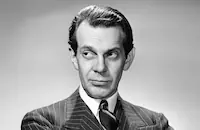
Raymond Massey

Katina Paxinou
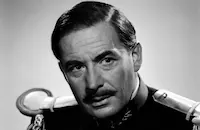
Leo Genn

Kirk Douglas

Nancy Coleman

Henry Hull
Sara Allgood
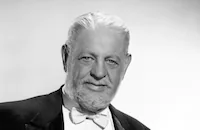
Thurston Hall
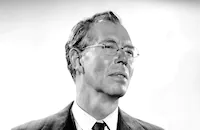
Walter Baldwin

Elisabeth Risdon
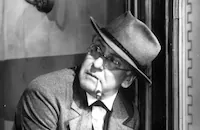
Erskine Sanford
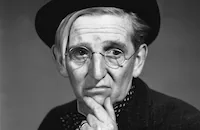
Jimmy Conlin
Lee Baker

Tito Vuolo
Emma Dunn
Nora Cecil
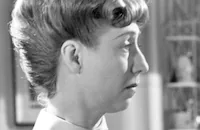
Marie Blake

Clem Bevans
Jean Clarenden
Andre Charlot
Robert Dudley
Colin Kenny
Marjorie Eaton
Hans Hopf
Gordon Warren
Broderick O'farrell
Crew
C. Bakaleinikoff
Travis Banton
George Barnes
Gordon Bau
Jerry Breckenridge
Lucien Cailliet
Russell A. Cully
Albert S. D'agostino
Edward Donahue
William E. Flannery
Jack Gage
Roland Gross
Richard Hageman
Chandler House
Martin Lewis
Harry Mancke
Dudley Nichols
Dudley Nichols
Fred Phillips
Clem Portman
Darrell Silvera
Gile Steele
Vernon L. Walker
Earl A. Wolcott
Maurice Yates

Videos
Movie Clip



Film Details
Technical Specs

Award Nominations
Best Actor
Best Actress
Articles
Mourning Becomes Electra
Inspired by the "Oresteia" trilogy by Aeschylus, Mourning Becomes Electra sets the tragic action in 1865 Massachusetts, with Russell cast as Lavinia, a Civil War-era Electra. Raymond Massey plays the patriarch of the murderous family, with Greek actress Katina Paxinou as his wife and British actor Michael Redgrave as Lavinia's brother. Leo Genn costars as a sea captain who has an affair with Paxinou, setting off a spiral of bloody violence. Kirk Douglas, in his second film, appears in a supporting role. Redgrave, in his Hollywood debut, also was nominated for an Oscar, as Best Actor.
Russell wrote in her autobiography that she would have preferred playing Paxinou's part, with Olivia de Havilland as Lavinia. Nichols insisted, however, that Russell take on the younger role. From all reports, the international cast was ill at ease during filming. Russell wrote that Redgrave was "a hell of a good actor, but nervous, taking pills to calm himself." In his autobiography, Redgrave sniped in turn that Russell was "an excellent comedienne," but "Mourning did not become her." Redgrave added that, "On the first day of shooting, she greeted me with 'Hi, Michael!' I hear you dig deep into your part. Not me, I'm afraid. I like to have a laugh with the boys in the gantry, know what I mean?" Redgrave, with typical British reserve, wrote that he "thought it wiser not to pursue this too far." Redgrave unintentionally offended neophyte Kirk Douglas by giving him a gag gift - an old theatrical pamphlet offering advice to aspiring actors about how to treat their more experienced colleagues. Meantime, according to Russell, the volatile Paxinou was "screaming and yelling all over the set." Russell summed up the filming experience: "It was murder."
Despite some excellent reviews and awards (the National Board of Review Best Actor award for Redgrave, a Golden Globe for Russell), Mourning Becomes Electra was a major disappointment at the box office, losing almost $3 million after all receipts were counted. The most expensive project RKO had ever attempted, this "prestige" black-and-white film was first released as a road-show attraction with an intermission, then trimmed by 25 minutes for the rest of its initial release. Still, it remained a personal victory for Russell, who wrote that she "received a rare, handwritten note from Eugene O'Neill telling me how he loved my performance as Lavinia." By the time Oscar season rolled around, it seemed that Russell's chances were excellent.
The campaign to win Russell the Oscar that had eluded her the year before was masterminded by publicist Henry Rogers, who had mounted successful Best Actress campaigns for two years running, for Joan Crawford (Mildred Pierce, 1945) and Olivia de Havilland (To Each His Own, 1946). Among Rogers' tactics was having a casino in Las Vegas post odds on the Oscar race, with Russell favored at 6-5. A few days before the awards, a Daily Variety poll also predicted an easy win for Russell.
On the night of the Oscars, even presenter Fredric March seemed prepared to speak Russell's name as Best Actress. He saw with a shock that the winner was instead Russell's close friend Loretta Young, for the comedy The Farmer's Daughter - a lightweight role Russell had turned down, according to The Hollywood Reporter. Louella Parsons recalled that she was "seated directly behind Rosalind. . . Never as long as I live will I forget that almost involuntary motion she made of leaning forward, almost rising from her seat." Although obviously disappointed, Russell proved to be a good sport and showed up at the post-awards party, where she embraced Young for photographers.
Producers: Dudley Nichols, Edward Donahue (associate)
Director: Dudley Nichols
Screenplay: Dudley Nichols, from play by Eugene O'Neill
Cinematography: George Barnes
Production Design: William Flannery
Costume Design: Travis Banton, Gile Steele
Original music: Richard Hageman
Editing: Roland Gross, Chandler House
Principal Cast: Rosalind Russell (Lavinia Mannon), Michael Redgrave (Orin Mannon), Raymond Massey (Brig. Gen. Ezra Mannon), Katina Paxinou (Christine Mannon), Leo Genn (Adam Brant), Kirk Douglas (Peter Niles), Nancy Coleman (Hazel Niles), Henry Hull (Seth Beckwith), Sara Allgood (Landlady).
BW-159m. Closed captioning.
by Roger Fristoe

Mourning Becomes Electra
Mourning Becomes Electra
Inspired by the "Oresteia" trilogy by Aeschylus, Mourning Becomes Electra sets the tragic action in 1865 Massachusetts, with Russell cast as Lavinia, a Civil War-era Electra. Raymond Massey plays the patriarch of the murderous family, with Greek actress Katina Paxinou as his wife and British actor Michael Redgrave as Lavinia's brother. Leo Genn costars as a sea captain who has an affair with Paxinou, setting off a spiral of bloody violence. Kirk Douglas, in his second film, appears in a supporting role. Redgrave, in his Hollywood debut, also was nominated for an Oscar®, as Best Actor.
Russell wrote in her autobiography that she would have preferred playing Paxinou's part, with Olivia de Havilland as Lavinia. Nichols insisted, however, that Russell take on the younger role. From all reports, the international cast was ill at ease during filming. Russell wrote that Redgrave was "a hell of a good actor, but nervous, taking pills to calm himself." In his autobiography, Redgrave sniped in turn that Russell was "an excellent comedienne," but "Mourning did not become her." Redgrave added that, "On the first day of shooting, she greeted me with 'Hi, Michael!' I hear you dig deep into your part. Not me, I'm afraid. I like to have a laugh with the boys in the gantry, know what I mean?" Redgrave, with typical British reserve, wrote that he "thought it wiser not to pursue this too far." Redgrave unintentionally offended neophyte Kirk Douglas by giving him a gag gift - an old theatrical pamphlet offering advice to aspiring actors about how to treat their more experienced colleagues. Meanwhile, according to Russell, the volatile Paxinou was "screaming and yelling all over the set." Russell summed up the filming experience: "It was murder."
Despite some excellent reviews and awards (the National Board of Review Best Actor award for Redgrave, a Golden Globe for Russell), Mourning Becomes Electra was a major disappointment at the box office, losing almost $3 million after all receipts were counted. The most expensive project RKO had ever attempted, this "prestige" black-and-white film was first released as a road-show attraction with an intermission, then trimmed by 25 minutes for the rest of its initial release. Still, it remained a personal victory for Russell, who wrote that she "received a rare, handwritten note from Eugene O'Neill telling me how he loved my performance as Lavinia." By the time Oscar® season rolled around, it seemed that Russell's chances were excellent.
The campaign to win Russell the Oscar® that had eluded her the year before was masterminded by publicist Henry Rogers, who had mounted successful Best Actress campaigns for two years running, for Joan Crawford (Mildred Pierce, 1945) and Olivia de Havilland (To Each His Own, 1946). Among Rogers' tactics was having a casino in Las Vegas post odds on the Oscar® race, with Russell favored at 6-5. A few days before the awards, a Daily Variety poll also predicted an easy win for Russell.
On the night of the Oscars, even presenter Fredric March seemed prepared to speak Russell's name as Best Actress. He saw with a shock that the winner was instead Russell's close friend Loretta Young, for the comedy The Farmer's Daughter - a lightweight role Russell had turned down, according to The Hollywood Reporter. Louella Parsons recalled that she was "seated directly behind Rosalind. . . Never as long as I live will I forget that almost involuntary motion she made of leaning forward, almost rising from her seat." Although obviously disappointed, Russell proved to be a good sport and showed up at the post-awards party, where she embraced Young for photographers.
The Image Entertainment DVD of Mourning Becomes Electra is acceptable though there are better looking public domain titles of other famous titles in circulation such as A Star is Born (1937). This print shows signs of some heavy wear and tear near the reel changes and speckling is a problem throughout the movie. You should know in advance that the Image disc is not the original 173-minute version but the 159-minute British version and there are absolutely no extra features.
For more information about Mourning Becomes Electra, visit Image Entertainment. To order Mourning Becomes Electra, go to TCM Shopping.
by Roger Fristoe
Mourning Becomes Electra
Quotes
Trivia
Notes
Eugene O'Neill's name appears above the title in the film's opening credits. The film, like O'Neill's play, was divided into three distinct sections, which were titled "Homecoming," "The Hunted" and "The Haunted." Theater scholars note that O'Neill's play was inspired by Aeschylus' tetrology The Oresteia; Aeschylus' character "Agamemnon" became "Ezra Mannon," "Clytemnestra" became "Christine Mannon" and "Electra" became "Lavinia Mannon." In the original Theatre Guild production, which ran six hours with a dinner break, Alla Nazimova played Christine and Alice Brady played Lavinia. Modern sources add the following information about the film's inception: In 1935, Theresa Helburn asked M-G-M head Louis B. Mayer to film O'Neill's play, with Katharine Hepburn playing Lavinia. Mayer, whose studio had produced a financially unsuccessful version of O'Neill's play Strange Interlude in 1932 (see AFI Catalog of Feature Films, 1931-40 F3.4348), turned down the request, and the idea for a screen adaptation did not resurface until the mid-1940's. When O'Neill was approached to sell the play's screen rights, he insisted that Dudley Nichols, with whom he enjoyed a close friendship, be allowed to write, produce and direct the adaptation. O'Neill also stipulated that Rosalind Russell, whose performance in the 1946 RKO film Sister Kenny (see below entry) he greatly admired, star as Lavinia. Greta Garbo was first considered to play Christine, but declined to come out of retirement because she felt that, at the age of forty-two, she was too young to play the mother of Russell, who was then thirty-nine. (Ironically, Greek actress Katina Paxinou, who was cast as Christine, was only forty-three years old at the time of production, a fact some contemporary reviewers noted with disdain.)
According to an interoffice RKO memo included in the MPAA/PCA Collection files at the AMPAS Library, RKO executive William Gordon proclaimed that, in his view, O'Neill's play was in "complete violation of the Production Code." Gordon suggested that if the studio's contract with O'Neill had not yet been finished, RKO should add a clause requiring PCA approval prior to agreeing to the deal. Although PCA director Joseph I. Breen did express concern that the screenplay not contain any inference to incest, he deemed the story acceptable and did not demand any eliminations from the film.
Mourning Becomes Electra was The Theatre Guild's first film producing venture. A news item in Variety reported that the Guild gave RKO a ten-year lease on the screen rights to the play, which it co-owned with O'Neill. According to the Variety review, in exchange for the use of its name and "minor consultation...on casting," the Guild was to receive approximately two and a half percent of the picture's distribution gross. A Hollywood Reporter news item noted that O'Neill acted as an advisor on various aspects of the production. According to the SAB, Nichols requested that his name not be included in the onscreen credits as writer. (Modern sources note that dialogue in the film was not altered from the play.) Because of this request, Nichols was not eligible for a "Best Screenplay" Academy Award for this picture. In January 1947, Hollywood Reporter announced that Seth Arnold, who played "Seth Beckwith" in an early New York stage production, was to recreate his role for the film; Henry Hull, however, played the screen part. RKO borrowed Michael Redgrave from the J. Arthur Rank Organization for this production. Redgrave, who made his American screen debut in the film, replaced James Mason, according to Hollywood Reporter. Leo Genn made his screen debut in the film, which also marked Kirk Douglas' first assignment for RKO. (Douglas also appeared in RKO's Out of the Past, which was released before Mourning Becomes Electra, but was made later.) Jacqueline White, Shawn McGlory, Heather Angel, Frances Heflin, Evelyn Ankers and Ann Rutherford tested for roles, but were not cast, as indicated in RKO production files. Although Hollywood Reporter announced that the score for the picture was to be the "longest in screen history," very little music was heard on the viewed print. The traditional sea shanty "Shenandoah," which is referred to in the stage directions of O'Neill's play, was sung throughout the film by an offscreen chorus.
After its New York premiere, Nichols cut the film from approximately 175 minutes to 157 minutes, according to a December 23, 1947 Hollywood Reporter news item. The picture was screened at 157 minutes during the first half of its roadshow run, but was cut to 121 minutes in October 1948. Some of the above-listed bit players, including Jimmy Conlin and Robert Dudley, were not seen in the viewed print and were probably edited out for the shorter version. Although modern sources state that the picture was shown with a ten-minute intermission, the Variety review of the New York opening noted that it was presented without an intermission. The film opened generally in March 1949. Rosalind Russell was nominated as Best Actress for her performance as Livinia, but lost to Loretta Young in RKO's The Farmer's Daughter , and Michael Redgrave was nominated as Best Actor but lost to Ronald Colman in A Double Life .
Many reviews commented on the non-commercial, intellectual nature of this film. In a New York Times article published shortly before the film's New York opening, Dudley Nichols voiced his concern about current Hollywood filmmaking and the riskiness of projects like Mourning Becomes Electra: "After spending a year's continuous effort on the film production of...'Mourning Becomes Electra,' I can only hope that it will be liked by the people whose judgment I respect....So long as the people demand witless entertainment and adolescent films, and stay away in flocks when an adult film is presented, they will continue to get them." As feared by Nichols, Mourning Becomes Electra was a box office failure, losing, according to modern sources, $2,310,000. An operatic version of O'Neill's play, libretto by Henry Butler, music by Marvin David Levy, was presented by the Metropolitan Opera Company in 1967. On December 6, 1978, as part of its Great Performances series, PBS broadcast a televised version of O'Neill's play, starring Joan Hackett, Roberta Maxwell and Bruce Davison.

Miscellaneous Notes
Released in United States Fall November 22, 1947
Released in United States Fall November 22, 1947













